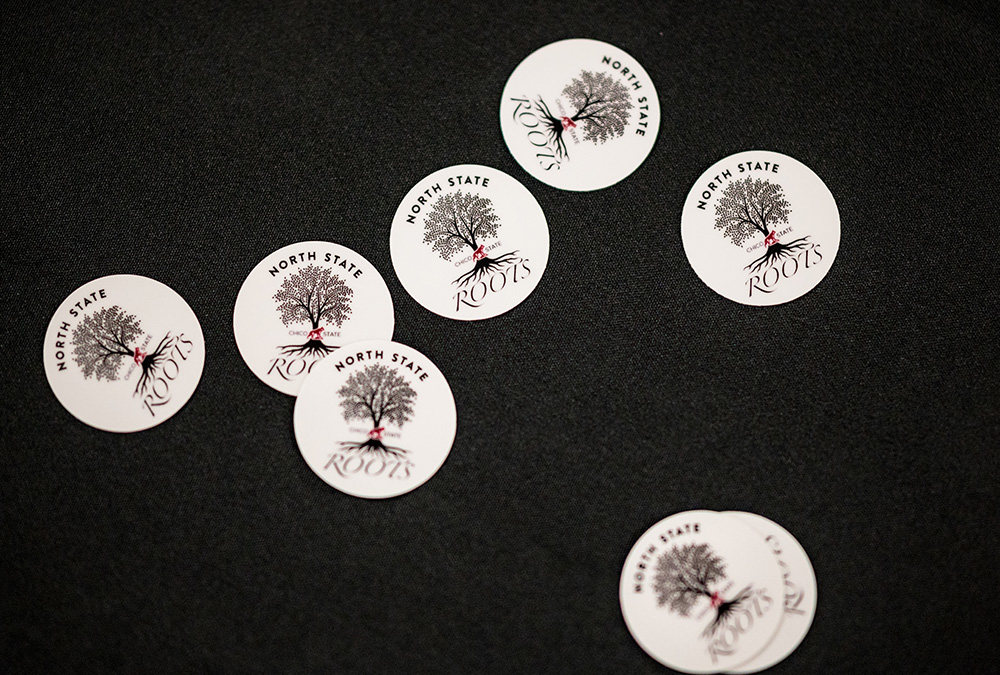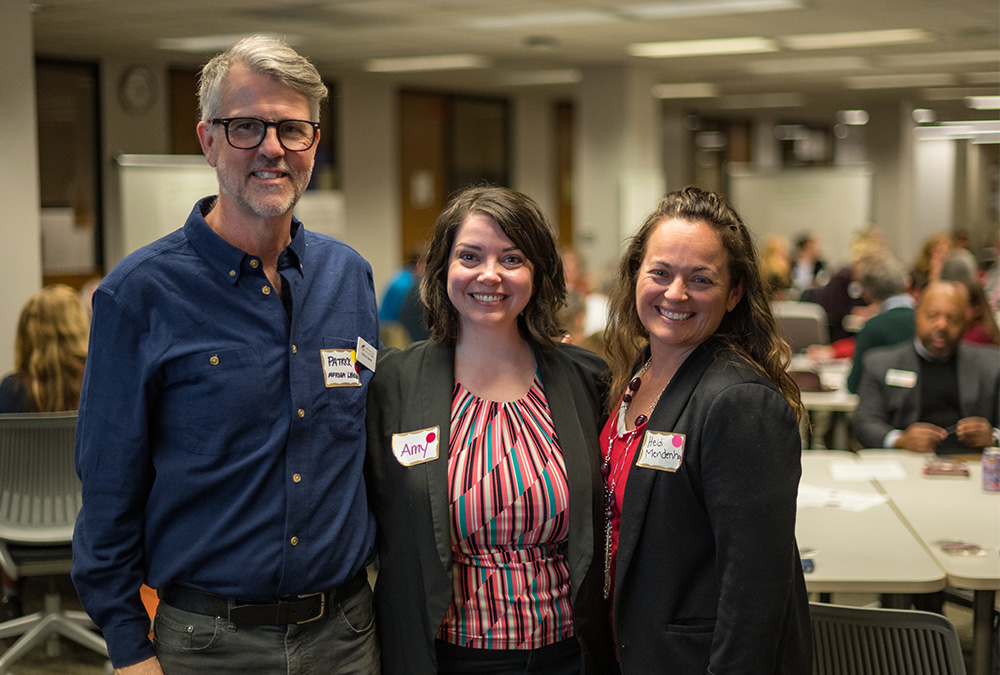North State Roots Collaboration Expands Access to Healthcare Information in Rural Communities

Chico State Professor Amy Magnus along with Patrick Newell of Meriam Library and Heidi Mendenhall of First 5 Tehama have co-created a project that aims to give rural communities across the North State access to free, instant healthcare information—covering everything from diagnostics to nutrition. A year after this initiative was first funded and supported by the Network of the National Library of Medicine (NLM), they are centralizing their efforts in public spaces that represent access to information for all: libraries.
*
A common barrier to healthcare often starts with a lack of fast, reliable information.
For people with good healthcare plans, a range of providers in their community, and the means to eat nutritious meals every day, picking up the phone or chatting electronically with a practitioner is not a stretch.
But this is not the case for many people across our state, who are not able to get important answers to physical, mental, vision, dental, or nutritional health quickly.
For some, a language barrier causes the blockage (43.9% of Californians speak a language other than English), while others might not have health coverage, funds for a copay, or transport to a healthcare facility. It’s within the connection points to these inequalities that people fall through the cracks.
While true for all communities, it is particularly acute in rural communities where a lack of funding, resources, and infrastructure adds additional complexity to the already complex medical system.
Regardless, these are all issues that can be, in part, alleviated by access to a healthcare expert who can help triage a pressing question and point out the next steps to getting help.
To address this broad issue, Chico State Librarian Patrick Newell formed a partnership with Political Science and Criminal Justice Department Professor Amy Magnus and Heidi Mendenhall, Executive Director of First 5 Tehama, a child and family nonprofit organization and advocacy group focused on whole-child/whole-family health.

Operating as a team under North State Roots, they applied for a grant through the Network of the National Library of Medicine (NNLM) and received an initial $25,000 to train community health advocates—social workers, caseworkers, and others who work directly with people navigating the healthcare system—on a tool called Medline Plus that provides consumer health information in easy-to-read, non-technical language.
Their goal has been to train those who can make Medline Plus widely available to people who need it. NNLM describes it as a service that presents “high-quality, relevant health and wellness information that is trusted, easy to understand, and free of advertising, in both English and Spanish. Anywhere, anytime, on any device—for free.”
The team partnered with the Tehama County Library to host the initial training sessions for public advocates in English and Spanish.
“The project is a great merger of passionate people who care deeply about rural communities, social justice, and information access,” Magnus said. “At these initial trainings, we learned there’s a lot more appetite for this kind of work in the North State and that people are excited about these kinds of resources, not just Medline Plus but other kinds of telehealth.”
“When it comes to rural communities, we often focus on a deprivation mindset – what are rural communities lacking? What are they missing? However, rural communities have so much to offer and are often at the forefront of grassroots advocacy and activism. Rural people are adept at using social capital and local knowledge to get things done in their communities. Their voices and experiences are essential, especially considering rural people serve our society in important ways. Agriculture is just one great example of the important ways that people who live rurally keep all of us alive and functioning.”
Professor Amy Magnus
This year, the team is scaling up its efforts with more training sessions at libraries across the North State—with the goal of creating public information hubs at libraries. In addition to expanding their geographical reach, the team is looking to reach more people who work as community navigators, from educators to those in social services, nonprofit roles, and healthcare professionals.
“We are committed to bringing these resources to people and to their communities and ensuring they can access them,” Magnus said.
The overt connection between libraries as a public resource and essential healthcare information as a human right is not lost on Magnus.
“Libraries are a great space to do this work because they’re a public-level resource and they’re typically publicly funded, and information access is what they have provided for generations,” she said. “Public libraries are also one of those resources that anybody can and should be able to access regardless of class, race, gender, and other dimensions of one’s identity—factors that can act as barriers in some instances.”
Magnus is an assistant professor in the Department of Political Science and Criminal Justice, and rural populations are the focus of her academic research—which also fuels her activist passion to solve social injustices and inspire the next generation.
“For me, it’s really important to elevate rural voices and ensure that rural people are being served,” Magnus said.


